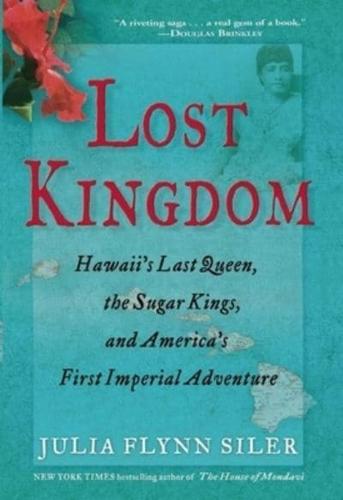Publisher's Synopsis
"Only one American state was formally a sovereign monarchy. In this compelling narrative, the award-winning journalist Julia Flynn Siler chronicles how this Pacific kingdom, creation of a proud Polynesian people, was encountered, annexed, and absorbed." Kevin Starr, historian, University of Southern California
Around 200 A.D., intrepid Polynesians paddled thousands of miles across the Pacific and arrived at an undisturbed archipelago. For centuries, their descendants lived with almost no contact from the Western world but in 1778 their profound isolation was shattered with the arrival of Captain Cook. Deftly weaving together a memorable cast of characters, Lost Kingdom brings to life the ensuing clash between the vulnerable Polynesian people and the relentlessly expanding capitalist powers. Portraits of royalty, rogues, sugar barons, and missionaries combine into a sweeping tale of the Hawaiian kingdom's rise and fall.
At the center of the story is Liliuokalani, the last queen of Hawaii. Born in 1838, she lived through the nearly complete economic transformation of the islands. Lucrative sugar plantations owned almost exclusively by white planters, dubbed the "Sugar Kings," gradually subsumed the majority of the land. Hawaii became a prize in the contest between America, Britain, and France, each of whom were seeking to expand their military and commercial influence in the Pacific.
Lost Kingdom is the tragic story of Liliuokalani's family and their fortunes. The monarchy had become a figurehead, victim to manipulation from the wealthy sugar-plantation owners. Upon ascending to the throne, Liliuokalani was determined to enact a constitution reinstating the monarchy's power but she was outmaneuvered and, in January 1893, U.S. Marines from the USS Boston marched through the streets of Honolulu to the palace. The annexation of Hawaii had begun, ushering in a new century of American imperialism.
Around 200 A.D., intrepid Polynesians paddled thousands of miles across the Pacific and arrived at an undisturbed archipelago. For centuries, their descendants lived with almost no contact from the Western world but in 1778 their profound isolation was shattered with the arrival of Captain Cook. Deftly weaving together a memorable cast of characters, Lost Kingdom brings to life the ensuing clash between the vulnerable Polynesian people and the relentlessly expanding capitalist powers. Portraits of royalty, rogues, sugar barons, and missionaries combine into a sweeping tale of the Hawaiian kingdom's rise and fall.
At the center of the story is Liliuokalani, the last queen of Hawaii. Born in 1838, she lived through the nearly complete economic transformation of the islands. Lucrative sugar plantations owned almost exclusively by white planters, dubbed the "Sugar Kings," gradually subsumed the majority of the land. Hawaii became a prize in the contest between America, Britain, and France, each of whom were seeking to expand their military and commercial influence in the Pacific.
Lost Kingdom is the tragic story of Liliuokalani's family and their fortunes. The monarchy had become a figurehead, victim to manipulation from the wealthy sugar-plantation owners. Upon ascending to the throne, Liliuokalani was determined to enact a constitution reinstating the monarchy's power but she was outmaneuvered and, in January 1893, U.S. Marines from the USS Boston marched through the streets of Honolulu to the palace. The annexation of Hawaii had begun, ushering in a new century of American imperialism.






